Insects: little robots or conscious beings?
Do insects have an awareness, are they conscious?
In this post I would like to share my own personal feelings and ideas about awareness. I’m not a scientist nor a biologist. I’m just somebody who has always been fascinated by this topic.
When I looked up “awareness” on Wikipedia, the second sentence in the article that I found was:
“Insects do not have consciousness in the usual sense because they lack the brain capacity for thought and understanding.”
Personally I think there are a few problems with this sentence.
- How is “consciousness in the usual sense” defined?
- How much brain capacity is needed for a being to be aware, to be conscious?
- Is brain capacity needed at all to be aware? Are plants not conscious in their own way?
- Is thought and understanding the only way by which awareness can be defined?
Further down the article a different theory was presented. This theory was formulated by Humberto Maturana and Francisco Varela in their “Santiago theory of cognition” in which they wrote:
“Living systems are cognitive systems, and living as a process is a process of cognition. This statement is valid for all organisms, with or without a nervous system.”
This theory presents a completely different view about cognition and awareness. It suggests awareness on a organic level that many would not consider conscious. Every living system, whether it’s a single cell organism or a more complex organism, responds and interacts with its environment. Therefore it can be argued that in order to do so that awareness exists within every level of life.
We humans consider ourselves to be aware or conscious because we think. We as the observer can differentiate between the observer and the observed. We, as a living system, interact with our environment. If we see a threat, we might want to run away. If it rains, we look for shelter. If we see an apple, we might decide to pick it up and eat it.
This is exactly the same for any organism on any level. The only difference between humans and less complex living systems is the amount of awareness about our environment in our brain. But we, being aware in our mind, are completely unaware of what’s going on in our 37.2 trillion cells that make up the human body.
Therefore awareness must exist on many levels. The cells themselves might not know that they are part of a bigger living system but they continuously adjust to their environment and they know exactly what to do to support that living system. They even know when to die.
When we look at insects, we might think they are not aware but I believe that they are. They might not think like we do. But they definitely interact with their environment in sometimes very complex ways.
Take these ants for example. They are operating an aphids farm. Ants and aphids have a symbiotic relationship with each other. The aphids secrete a sugary food for the ants and the ants protect the aphids from predators and parasites.
Ants possess this knowledge and they know what to do. They are doing this in reference to themselves.
Maturana formulates it as such:
"that what was peculiar to living systems was that they were discrete autonomous entities such that all the processes that they lived, they lived in reference to themselves ... whether a dog bites me or doesn't bite me, it is doing something that has to do with itself."
But how do ants know how to farm the aphids? How and where did they learn this?
Ants are always born in a colony, a collective of individual ants in which each ant has a different role to fulfil. Do they simply copy the behaviour of other ants? How does the ant know wether to become a worker or a soldier or a farmer? The ant is perhaps not consciously aware of it’s role. But as a living system it is. The ant starts to work according to its designated role in an extremely complex society.
The ant colony as a whole can be seen as a living system as well. Not in the biology sense of the word perhaps, but it does act as a living system. When it’s attacked it will defend itself. When the nest is damaged, the ants will repair it. As a colony it does so to protect itself as a colony which results in the survival of the ants, but not necessarily results in the survival of the individual ant.
The ants as a colony seem to operate on a different level of awareness. A level of awareness that benefits the ants but not necessarily the individual.
In this picture we see a grasshopper hiding from me. It’s completely aware of me. It’s hiding from me in reference to itself. It will not know that I’m called a human but it sees me as threat and responds accordingly.
The same grasshopper from a different angle. Notice that it is again looking at me.
In the following pictures you can clearly see that all these insects are looking at me. They are aware of my presence.
This dragonfly allowed me to approach it real close. Maybe it just recently emerged from it’s pupae. It definitely seems to look at me.
I’m quite convinced that it’s exactly the same dragonfly that I photographed a week later. Notice the little white dot on its left eye.
This time I could get really close. But what’s more; I think this one was actually flirting with me. It was not afraid of me, maybe it still remembered me and maybe it saw my camera lens as giant dragonfly eye. Who knows? I know this a very anthropomorphised view of the insect but it did interact with me in reference to itself.
Another interesting insect is the mud dauber. This type of wasp doesn’t live in a colony. It builds a nest for its offspring out of mud.
In my personal experience this insect is extremely aware. When they build their nest in our house they really know where it is. It doesn’t matter which window is open or on which floor, they always fly straight towards it.
They do so carrying a little ball of mud that they collected and made themselves. They also know where to find the right sand or clay to make their little balls of mud. They fly in and out of our house building their nests with astonishing speed and precision.
After building the nest, or the cell, they start bringing in food for their offspring. This is usually a little spider but I saw them carrying little caterpillars as well. The wasp grabs them and stings them to paralyse them and then lay their eggs on top of the victims. The cell is then closed with a mud cap.
Unfortunately I don’t have any pictures of mud daubers but I have witnessed their behaviour many times. To me, to be able to do all of this a mud dauber must have an awareness that is more than just instinct.
I even heard them singing to their young. Well, to me it sounded it as such.
The wasps in the next picture were actively protecting their queen. I found them swarming in my garden. They were probably looking for a place to build a nest. They were not aggressive when I photographed them. But these wasps, being aware of me, started to show a threat display. Notice that they all look at me.
My personal believe and answer to my initial question is that insects do have an awareness. As do all living creatures on this planet. Awareness cannot be measured in the capacity to think or understand. Awareness or consciousness seems to be a driving force behind life itself.
Thanks and much love,
Gardenbsquared

from the other passengers on our Eco-Train.
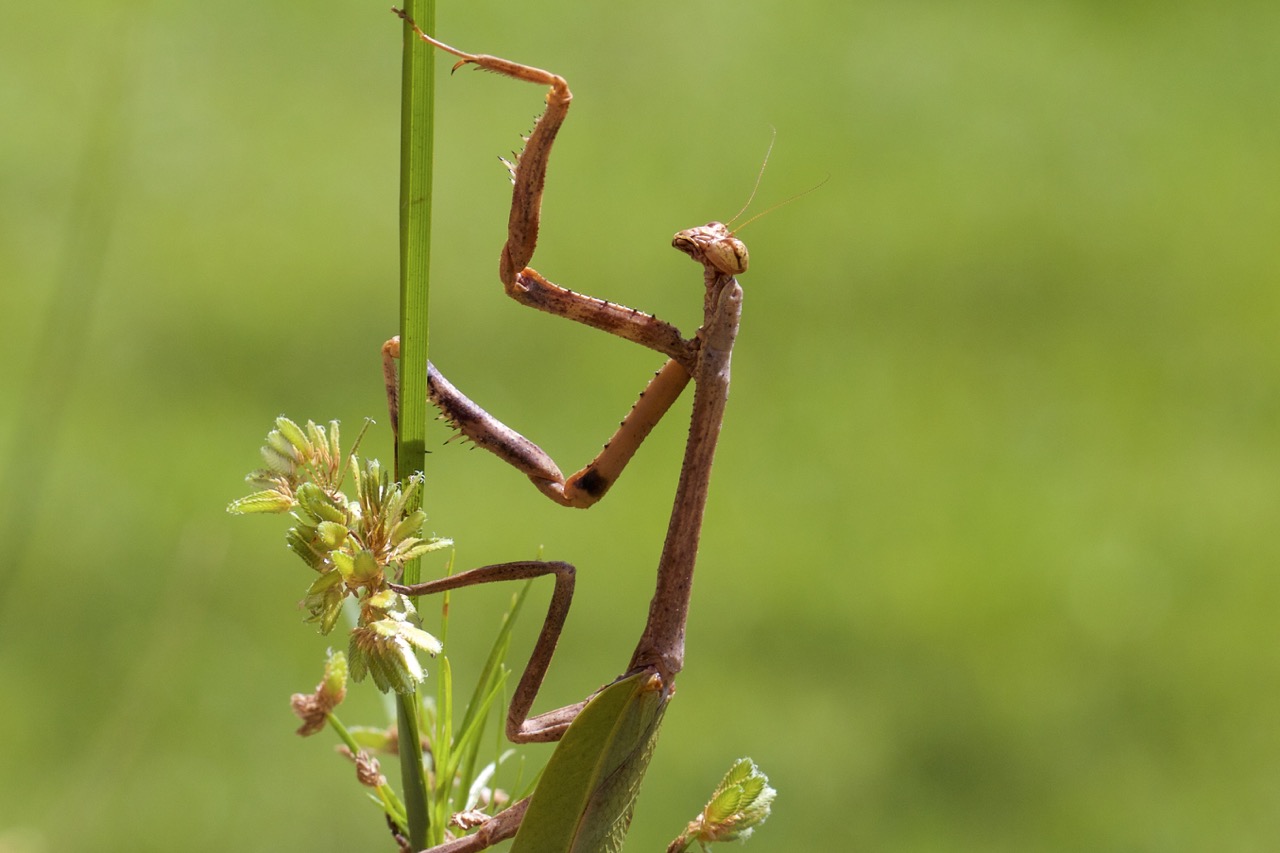
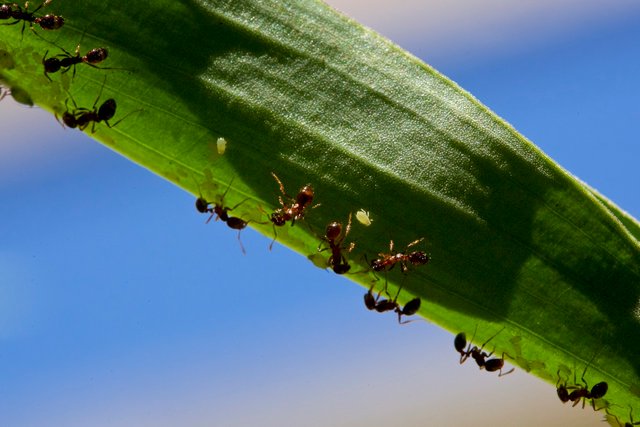
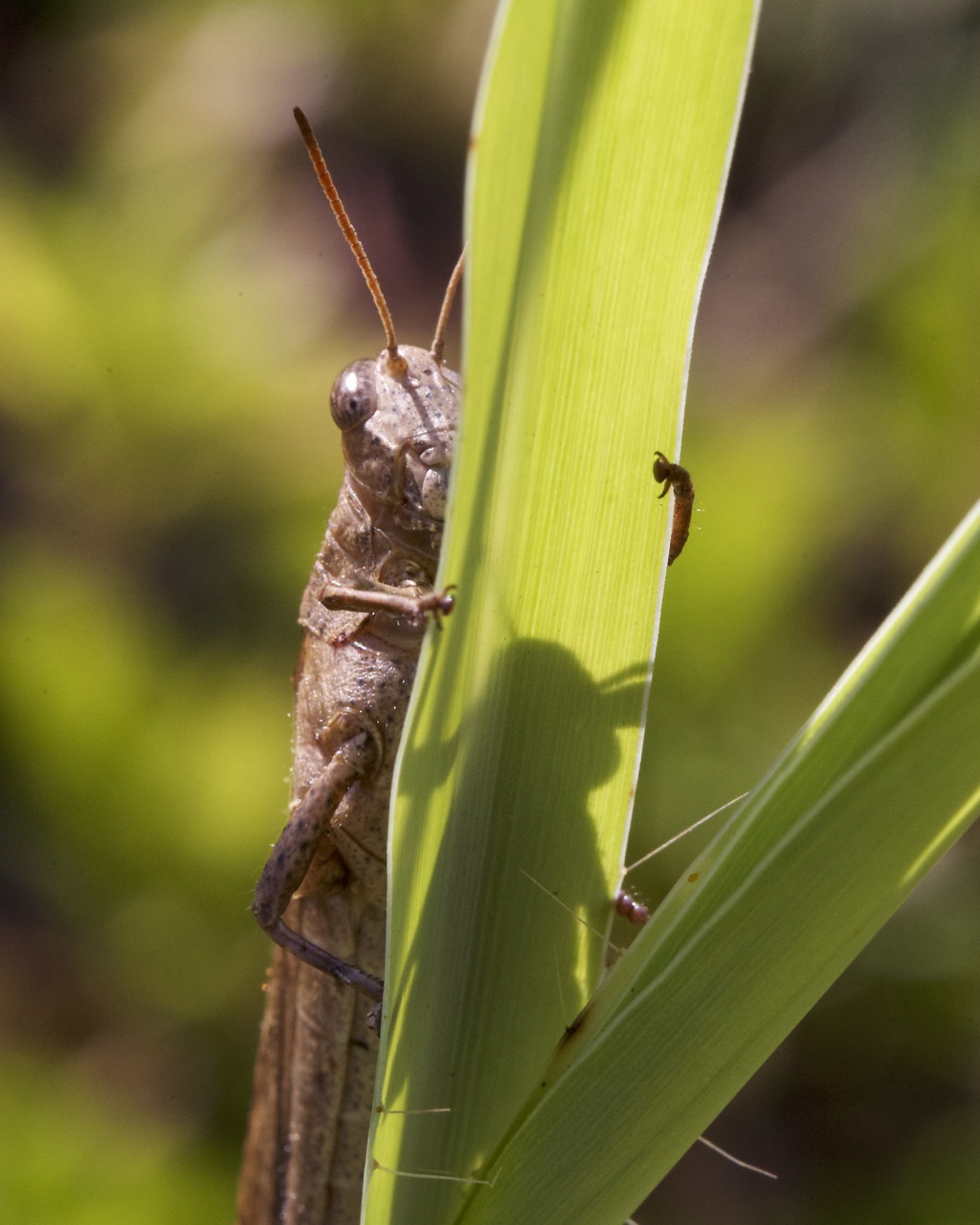
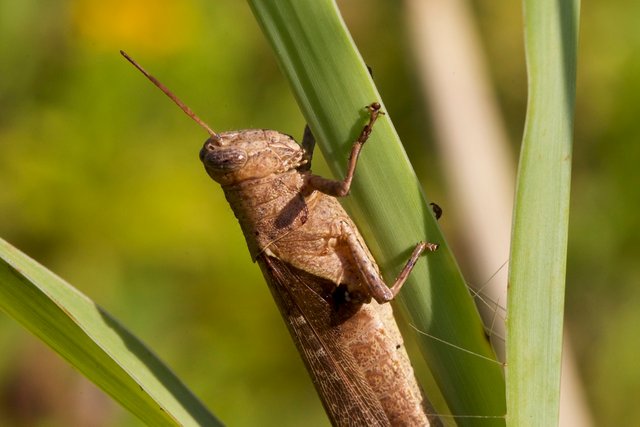
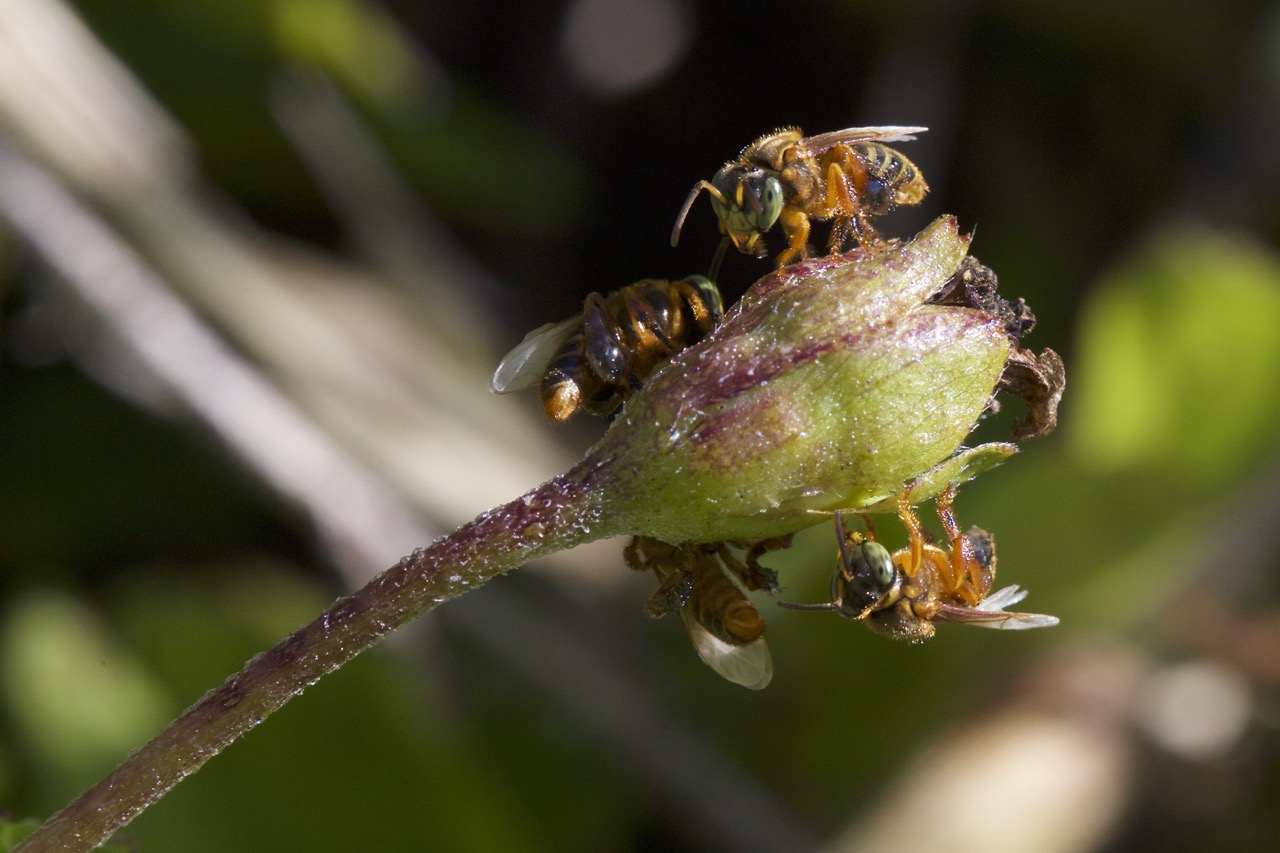
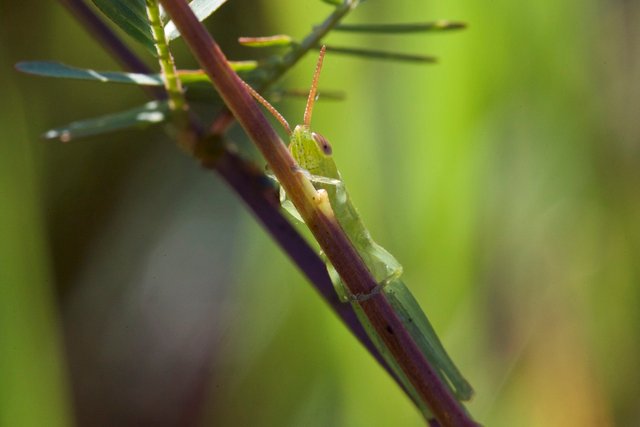
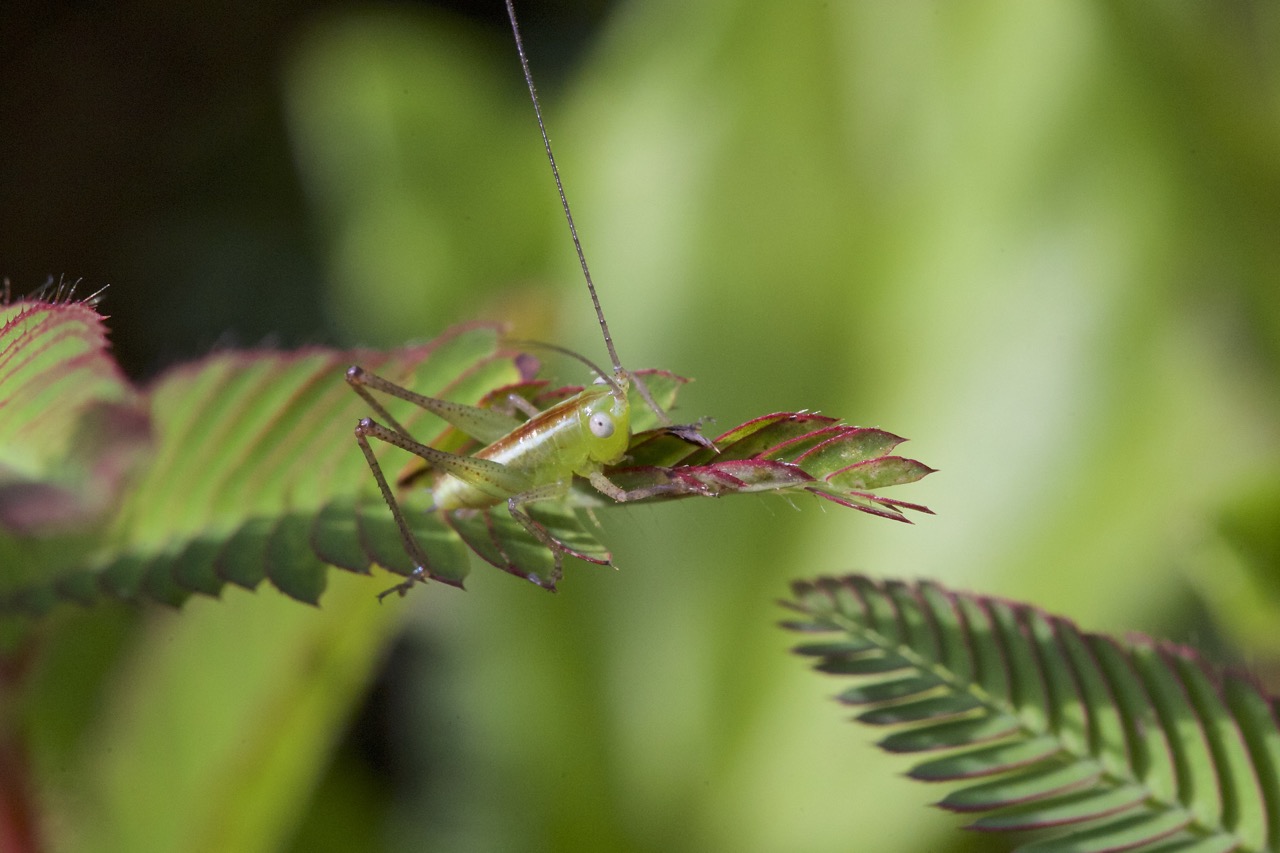
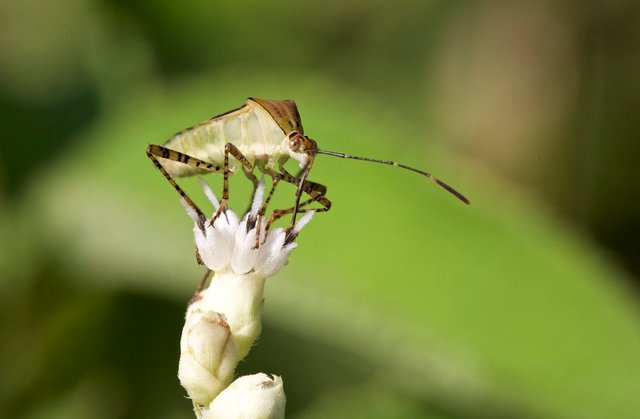
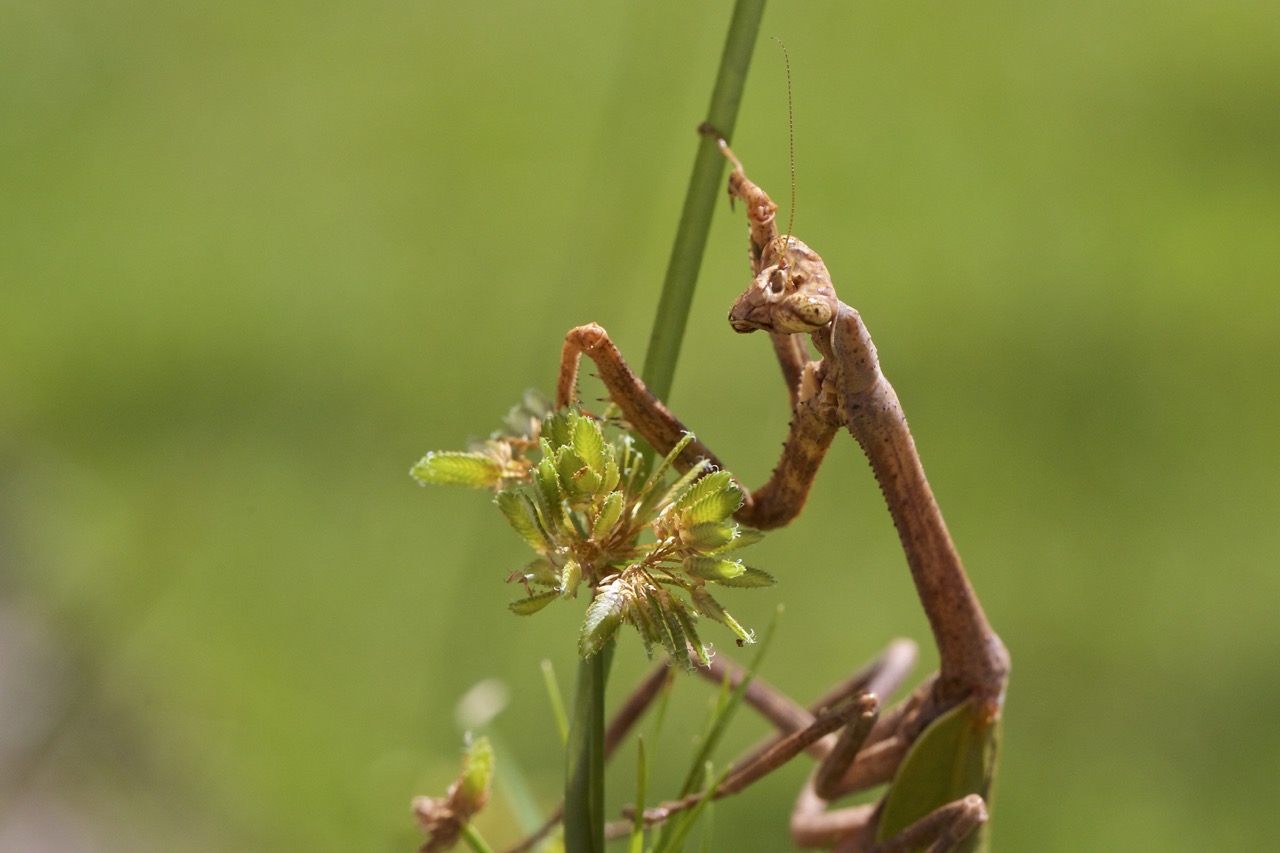
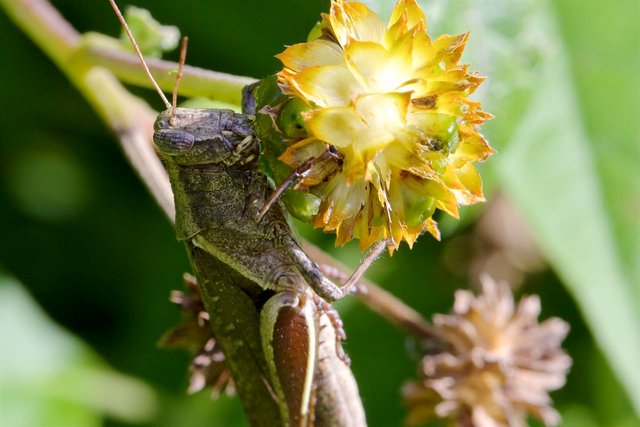
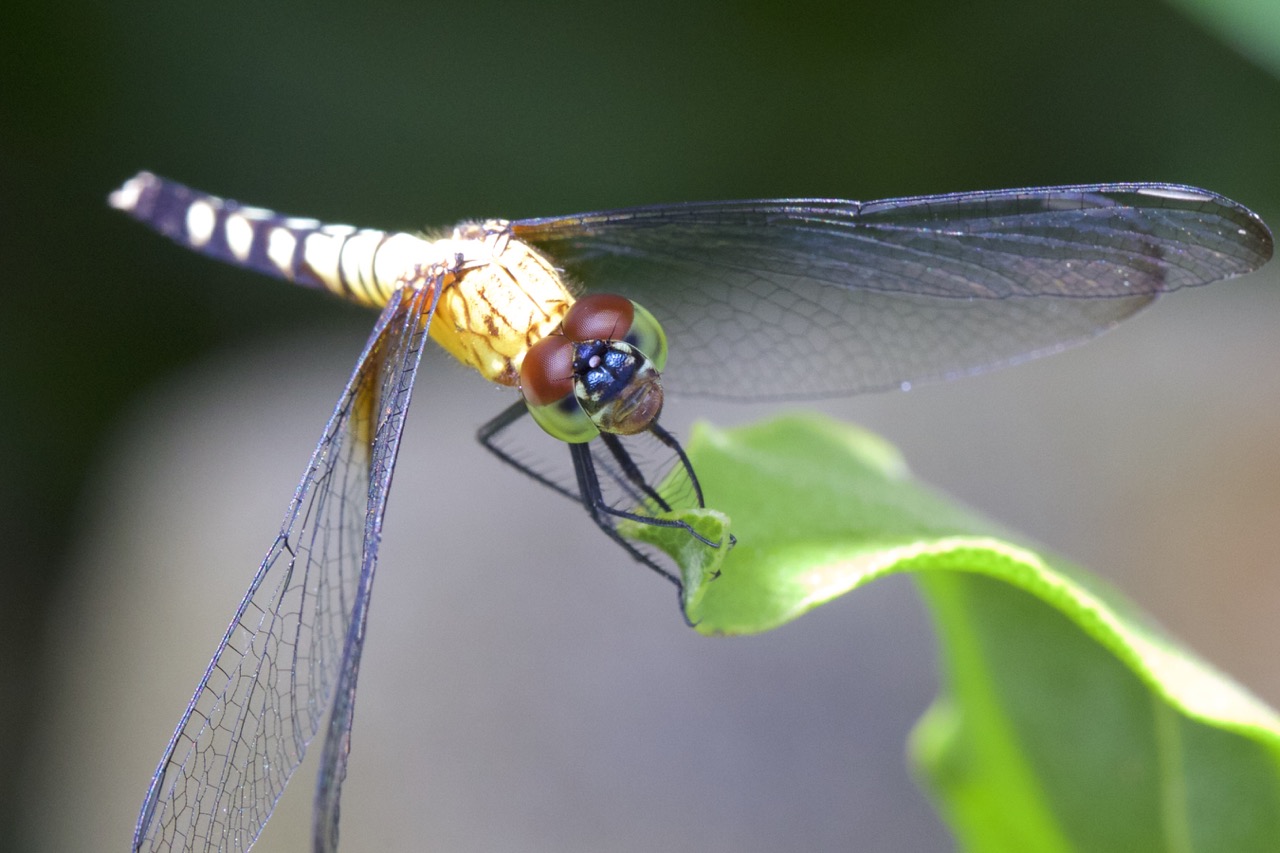
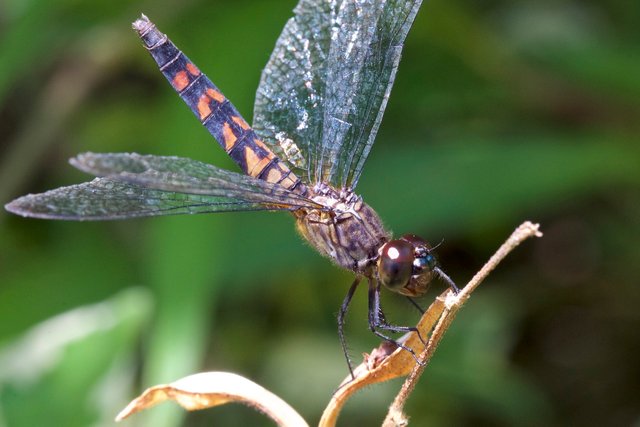
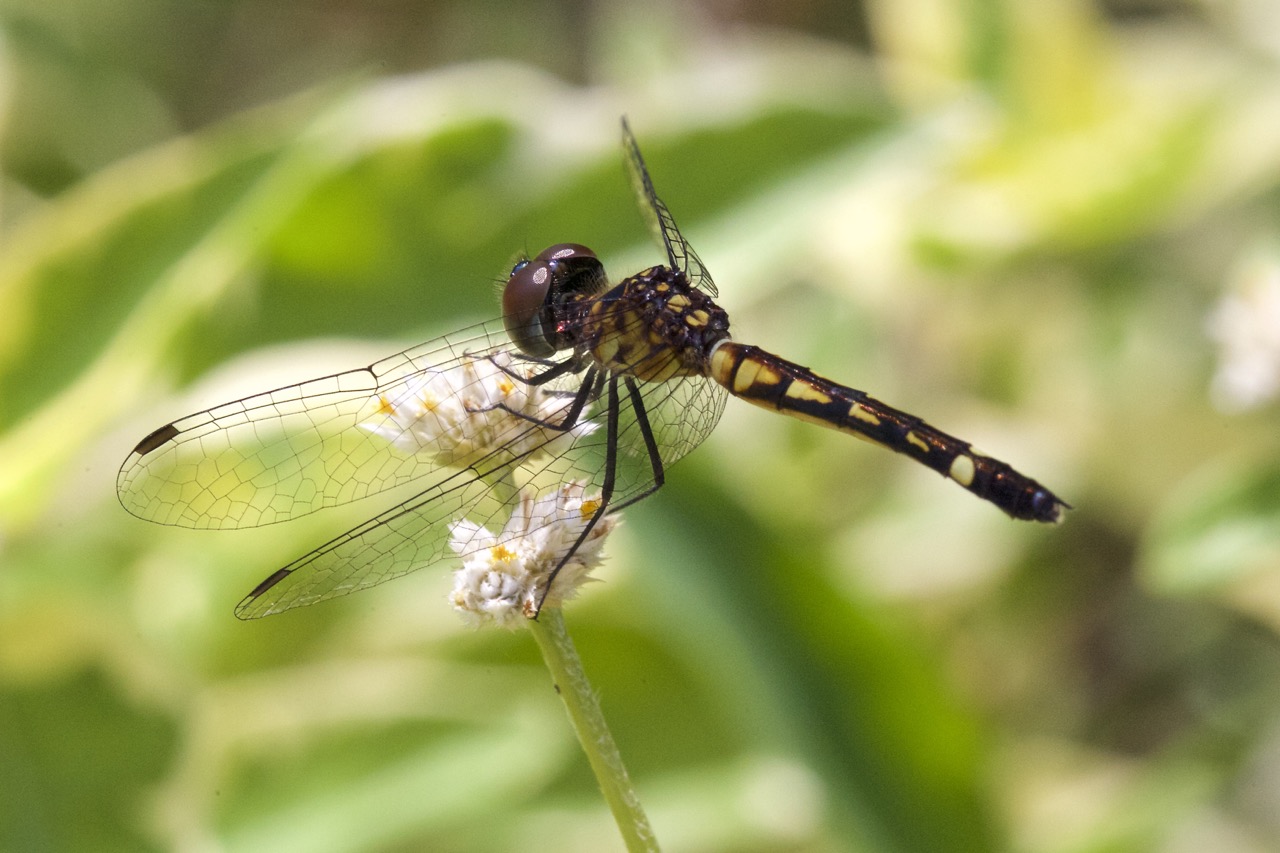
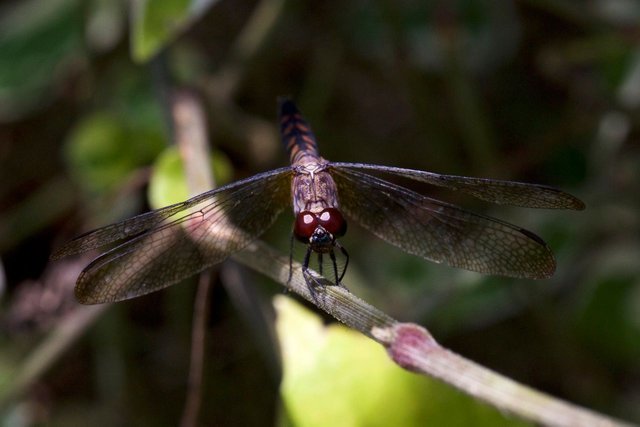
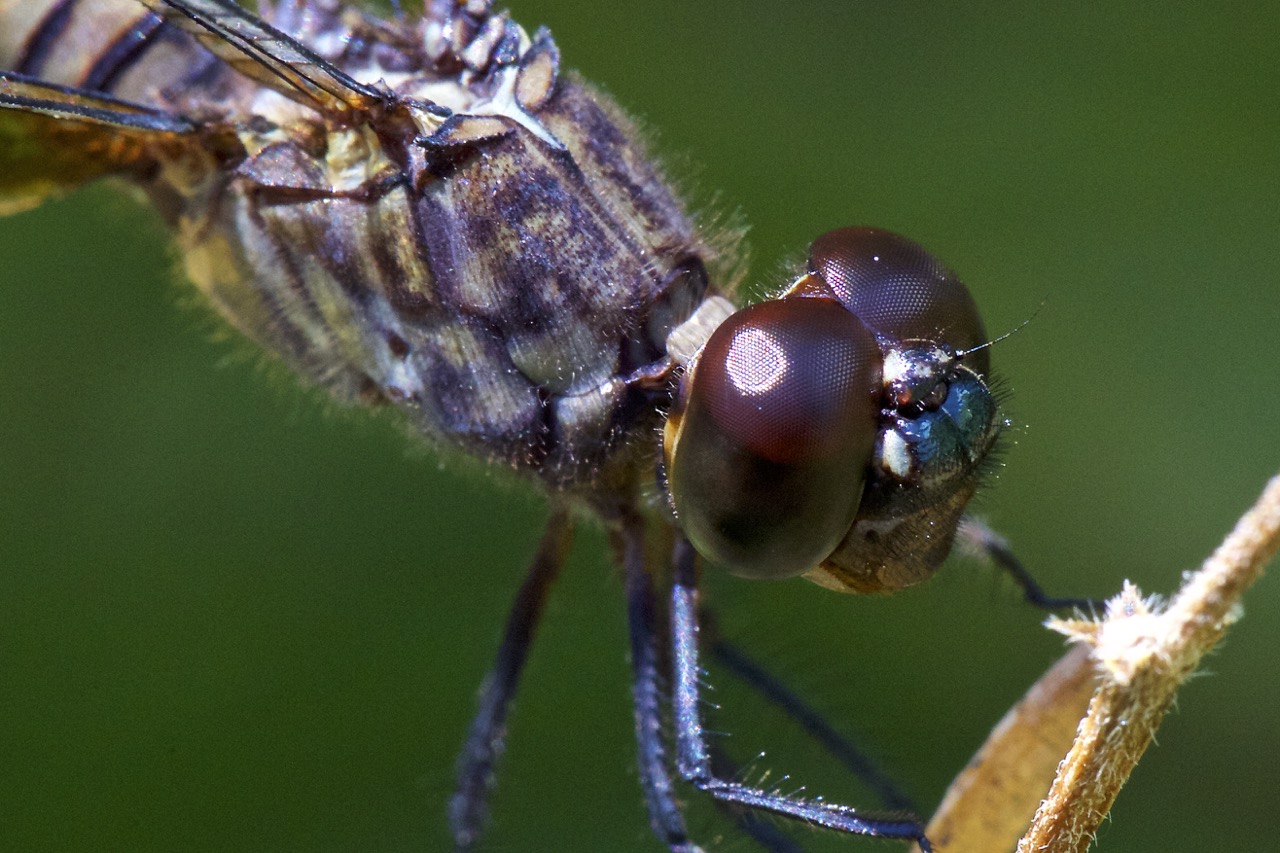
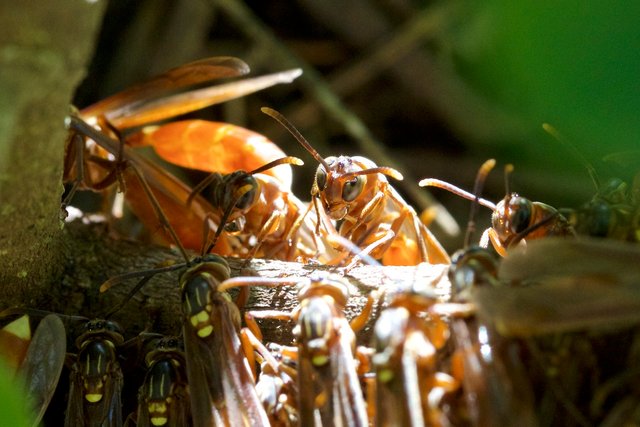
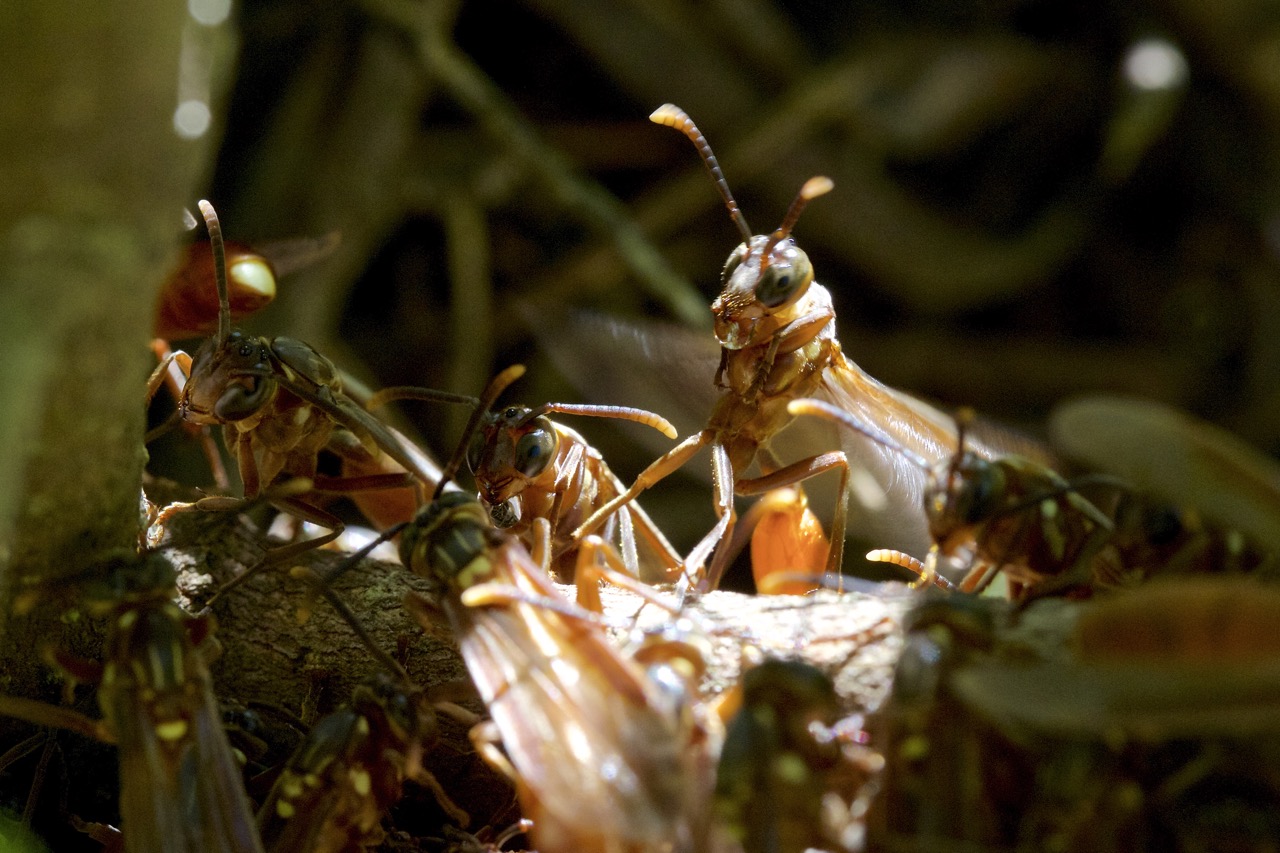
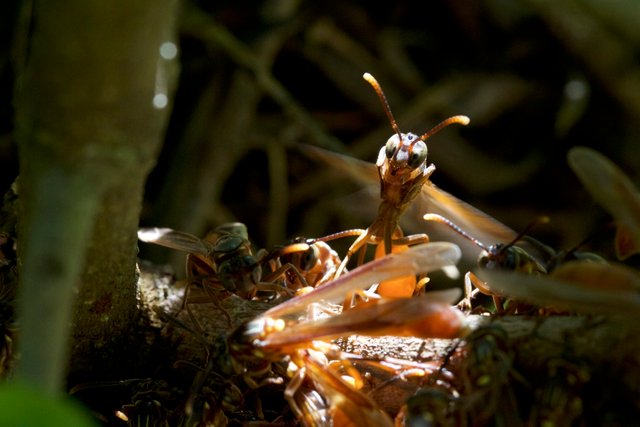
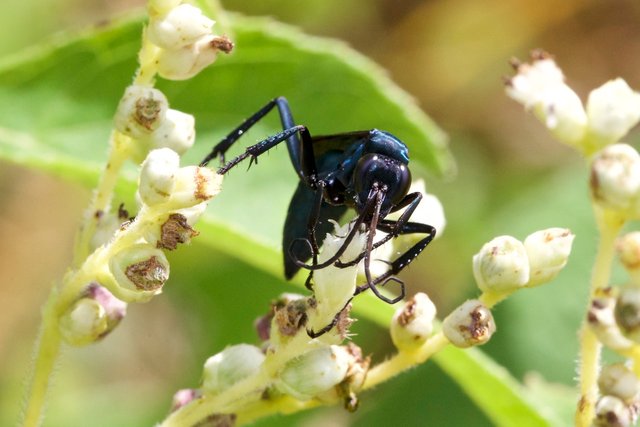
How is “consciousness in the usual sense” defined?
How much brain capacity is needed for a being to be aware, to be conscious?
Is brain capacity needed at all to be aware?
yup
Are plants not conscious in their own way?
nope
Is thought and understanding the only way by which awareness can be defined?
yup...once you start messing with the definitions to suite your argument then further discussion is useless
the capacity to be self aware. Insects are not.
Why is this your definition as opposed to "the ability to be aware of ones sorroundings"
More than an insect...less than a kitten
How do you know insects are not aware?
yup
Sure if you loosely define brain.
nope
The brain works because of cellular communication. If an organisms cells have the ability to communicate, and it displays an awareness of its sorroundings, how can you be sure it doesnt have something with similar functioning to a brain.
How do you know insects are not aware?
Has an insect ever passed the self aware test?
oh..by the way...I didn't say an insect is not self aware, I said less than a kitten
Actually some ants have apparently passed that test
And you said more then an insect, less then a kitten.
If an animal can pass the mirror test, it’s certainly strong evidence of self-recognition, and indicates the possibility of self-awareness (i.e. a “sense of self”). However, it’s not definitive proof. And if an animal isn’t able to pass, that doesn’t necessarily mean that they do not possess these abilities.
.
For example, animals that rely on other senses more heavily than their vision may not take much interest in the sight of their reflections. Dogs, who recognize others mainly by their sense of smell, might quickly conclude that their mirror image is not of themselves or any other animal, because it lacks a corresponding scent. Furthermore, some animals may be able to recognize themselves in the mirror and see that they have been marked, but do not find the mark important enough to warrant touching or inspection.
Interesting.
Are we to conclude that the test is worthless? If an animal relies on smell (dog) or sound (bats) or some other sense than vision...a mirror wouldn't be too useful would it?
I'm very carefully NOT mentioning hive minds..
I wouldn't call it useless, just failing it doesnt nessisarily mean that the creature doesn't have self-awareness.
Would definitly have to find some other test method to make that arguement, but I believe the premise for passing is sound enough.
OH? The test was designed to determine the existence of self awareness and it fails to do what it was designed to do but it's not useless?
Its not useless because the test does work, it is resonable to assume a creature that can repeatedly pass the test is self-aware. The only issue with the test is that failing it is not a certainty that the creature isn't self aware.
However it still has the use of showing that passing creatures are.
Insects are maybe not self aware but they are as a living system. I see that you don't understand that concept. Ending your comment that further discussion is useless proves to me that your intentions were none other than to bash my post. Why? Only you know.
Well insects certainly aren't little robots, they are very aware of their surroundings and tuned into nature, far more so than most humans!
So whether they are conscious depends on someone's definition of 'conscious'. Some people might consider conscious to be linked to thinking, whilst others consider it to be about awareness. Awareness goes deeper than thinking, a natural intuition that all living creatures have and most live through this natural intuition (except most humans!)
So if any species is living as little robots then it would have to be humans addicted to money, fame, success and technology.
Great article and more amazing photos, especially the close up ones! :)
Thank you for your nice comment. I like your twist on things. I agree that most humans lost their natural intuition. I'm probably one of them. ;)
You're welcome. You sound pretty tuned in to me! ;)
why do you hate humans?
I don't hate humans! I just don't think too many are tuned into nature and their natural intuition and way of living.
Humanity is becoming too robotic and that's not how we are meant to be.
coulda fooled me..
meant to be by who?
The problem with this question is generalized for all consciousness research: the term "consciousness" is ambiguous and means different things to different people. For some consciousness just means "higher-order awareness". For others it means "subjective experience". Insects surely don't have higher-order reflective consciousness. But perhaps they have subjective experience.
But how would we ever determine that empirically? Can we build a measuring device that when we point it at insects it goes "BING!" and detects consciousness? But how would we know if the measuring device was measuring things properly? We'd have to calibrate it. But to do so we'd have to have a "standard" by which to calibrate. But we have no such standard because there is no agreed upon theory of consciousness that can be used to determine the appropriate way to build a measuring device.
The entire field of consciousness studies is built upon sand. It's not an empirical field. And to the extent it is empirical it is built upon stipulative definitons: someone might stipulate what they mean by consciousness is higher-order cognition, then operationalzie that concept and study it, but why should we agree with that stipulation? The field is hopeless.
Great post though.
Thank you and thank you for the intelligent reply. It's more an philosophical question than a empirical one. But an interesting question none the less.
Empiricism isnt the only way to reason.
These are incredible pictures! You are really talented and patient!
Nice post. I understand consciousness as a higher level than awareness. Higher than self-awareness even, something like 'aware of the awareness', does that makes sense? :-)
I do think that awareness is in every living cell for sure, no brains needed and last but not least, i love reflecting posts and i want to be able to make that kind of pictures, could you maybe make a post on your equipment one day? Love.
Thanks @bubke. 'Aware of the awareness' does make sense to me. I don't have much equipment but I will do a little post about it.
Nice post and some interesting stuff in your other posts. Worth an upvote and follow from me.
Thank you @africanherbman. Followed.
I love what your post is doing here ...in my view, mind and life are continuos ...
in my opinion, self-awareness is a concept that exist in language. that is to say, it exists in Popper's world #3, the world of abstract ideas. it does not exist in world #1 (the world where truth and logic obtains), a world that does not make any sense in world #2 (experience) and world #3 (world of language).
unless we objectivity in parenthesis, we can't really discuss these profound ideas ... we can't co-construct in the sense of virtuous circle as opposed to a self-denying vicious cycle where the privileged few with access to the Truth (a concept existing in world #3) make compelling arguments ...